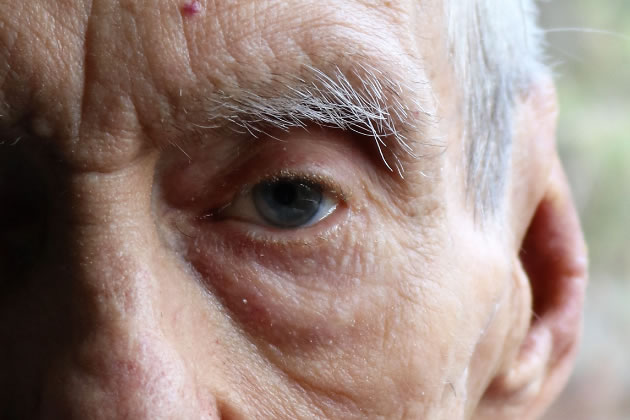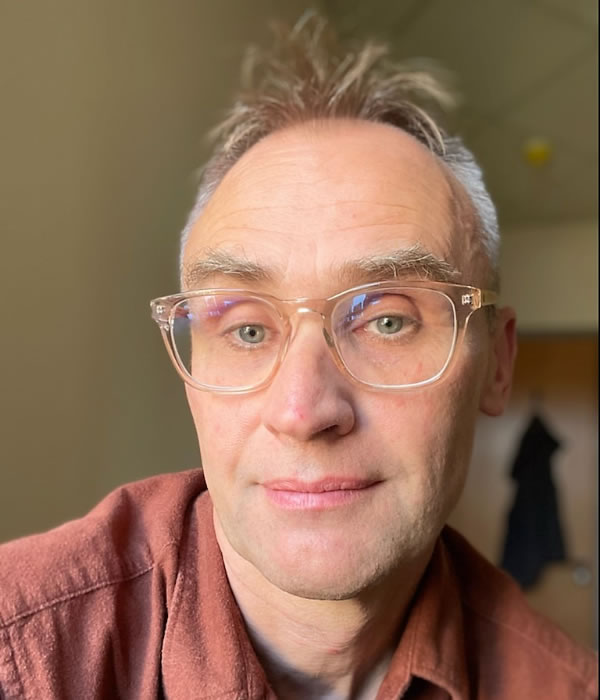A Personal Account of Volunteering as a Dementia Befriender
Steve Watkins who works at Ealing Hospital gives an insight

The need for support for dementia sufferers is increasing rapidly
I was a boy when I first came across dementia. My grandmother had been in hospital for some time and my father had chosen until then to visit her alone.
He warned me she wasn’t feeling herself in that protective anodyne way that parents often shield their children from life’s realities.
I remember Gran pulling my father close when we got to her bedside and asking him who I was in a voice shaking with confusion.
I was thinking the same thing and couldn’t understand what was wrong with her or the fact that this was the same woman, who a couple of years earlier, had molly-coddled me.
Adults appear invincible when you are young and when these giants of your world stumble and fall it is difficult to understand. It was only years later I realised how heart-breaking it must have been for my father to see a person he loved slowly eroded by a condition for which there is no cure.
This experience was echoed more recently when I found my 94-year-old neighbour wandering outside in the small hours of the morning.
Rose didn’t know where she was, despite standing within sight of the flat she called home for more than 60 years. She had the look of someone who had woken into a nightmare and found themselves in a strange land. And, I guess, that’s where she was.
Rose died in hospital two months later as many do when taken from the familiarity and independence of their own home. The death of this plucky widower who’d survived two world wars affected me and made me think about volunteering for the first time.
I had thought about it previously following the death of a different neighbour whose body lay undiscovered for several weeks while we carried on with life unaware above him. I’d often chat to George on his doorstep. He rode the buses every day saying the brief snatches of conversation he had with strangers made him feel less lonely.
I’d let good intention fall by the wayside on that occasion but my eye subsequently caught a poster asking for volunteers as part of an elderly befriending project.
I went to see the group who said what they really needed were volunteers who could visit older people in varying stages of dementia. I was surprised by how much I initially recoiled from the suggestion and how deep-rooted and prejudiced my opinion of mental health was without realising it.
Thankfully, I signed up, despite being less saintly than I first thought.
A year later that journey challenged a lot of my beliefs about care, compassion and mental illness and the simple fact that people want to be defined as people, not their condition.

Steve Watkins
The biggest surprise was Byron.
This funny, engaging 74-year-old was not what I expected. He had already spent several years in a care home and was in the early stages of vascular dementia but remained largely lucid.
Byron’s stubborn refusal to ‘sit and wait for the end’ made him one of the home’s real character’s prowling the home’s corridors in his sheep skin flying jacket with his gallows humour and endless supply of jokes.
I learnt a lot about spirit and dignity from this man who said he still looked in the mirror and was surprised to see his hair had turned grey.
Byron embodied fellow Welshman Dylan Thomas’s belief that we should all ‘rage, rage against the dying of the light’ was a great example of someone who believed life is for living.
He was a natural prankster and his constant steam of jokes always made me laugh including him bemoaning the fact that no-one got out of the care home unless ‘it was feet first in an ambulance.’
Thankfully, we proved that theory wrong when we made a break for the border.
It was a text book escape Steve McQueen would have been proud of although we swapped the motorbike and Swiss border for a No.8 bus and local shopping parade.
I handled the door entry code to get us off the ward and Byron, that sweet-talking silver fox, charmed his way out of the front door with the assurance that we were just taking our weekly walk around the green.
Instead, we hopped on a bus and spent the next hour seeing the sights. It was nothing out of the ordinary for me but for Byron it was a rare chance to see the outside world.
I realised it doesn’t take a lot to make a difference to someone’s life and I enjoyed my weekly visits as much as he did.
Byron’s dementia wasn’t overly noticeable although you could see it quietly gnawing at the edge of his consciousness in some of the repeated questions, anecdotes and little squalls of confusion he wrestled with.
Questions are a powerful way of helping people with dementia reconnect with themselves and, during the course of my hour long visits, I could see how they re-opened a succession of doors in his mind giving us more to talk about.
His memories reflected how bittersweet life is with all its twists and turns.
His father surviving the horrors of the First World War including the great battles of the Somme and Ypres; the lonely death of his beloved uncle whose own sons refused to bury him; and the touching story of his mother’s front door key which was the sole keepsake he chose from her possessions.
He laughs about the time his teenage friends threw his trousers in the sea and he had to cycle 60 miles back home from Brighton in his underpants; how he gave modern-day speed daters a run for their money by getting a date with his wife-to-be within a 15 minutes bus journey; and paying practical jokes including putting a house brick in a homeward bound workmate’s bag and filling another’s umbrella with shredded newsprint.
This gruff sometimes belligerent man also showed a softer side that was never less than touching. He sung love songs to his wife when she rang, kept a photo of her under his pillow and picked flowers from the garden when she visited.
What is more surprising is the effect volunteering had on me.
It made me more patient and understanding. I have learnt - fellow men take note - the value of listening as well as realising that action speaks louder than words and we often find excuses for not doing things instead of excuses for doing them.
Many of us express how dissatisfied we are with our jobs because there is little sense of contribution or making a difference. Volunteering is a small but important way of meeting that need.
It doesn’t have to be grand or noble or involve anything more than an hour or two a week. It’s about helping others and, in an odd way, helping yourself too.
If you are interested in volunteering locally you can go to twww.dementiaconcern.co.uk/apply-to-volunteer or volunteer@dementiaconcern.co.uk
Steve Watkins
Like Reading Articles Like This? Help Us Produce More This site remains committed to providing local community news and public interest journalism. Articles such as the one above are integral to what we do. We aim to feature as much as possible on local societies, charities based in the area, fundraising efforts by residents, community-based initiatives and even helping people find missing pets. We’ve always done that and won’t be changing, in fact we’d like to do more. However, the readership that these stories generates is often below that needed to cover the cost of producing them. Our financial resources are limited and the local media environment is intensely competitive so there is a constraint on what we can do. We are therefore asking our readers to consider offering financial support to these efforts. Any money given will help support community and public interest news and the expansion of our coverage in this area. A suggested monthly payment is £8 but we would be grateful for any amount for instance if you think this site offers the equivalent value of a subscription to a daily printed newspaper you may wish to consider £20 per month. If neither of these amounts is suitable for you then contact info@neighbournet.com and we can set up an alternative. All payments are made through a secure web site. One-off donations are also appreciated. Choose The Amount You Wish To Contribute. If you do support us in this way we’d be interested to hear what kind of articles you would like to see more of on the site – send your suggestions to the editor. For businesses we offer the chance to be a corporate sponsor of community content on the site. For £30 plus VAT per month you will be the designated sponsor of at least one article a month with your logo appearing if supplied. If there is a specific community group or initiative you’d like to support we can make sure your sponsorship is featured on related content for a one off payment of £50 plus VAT. All payments are made through a secure web site. |
November 3, 2022